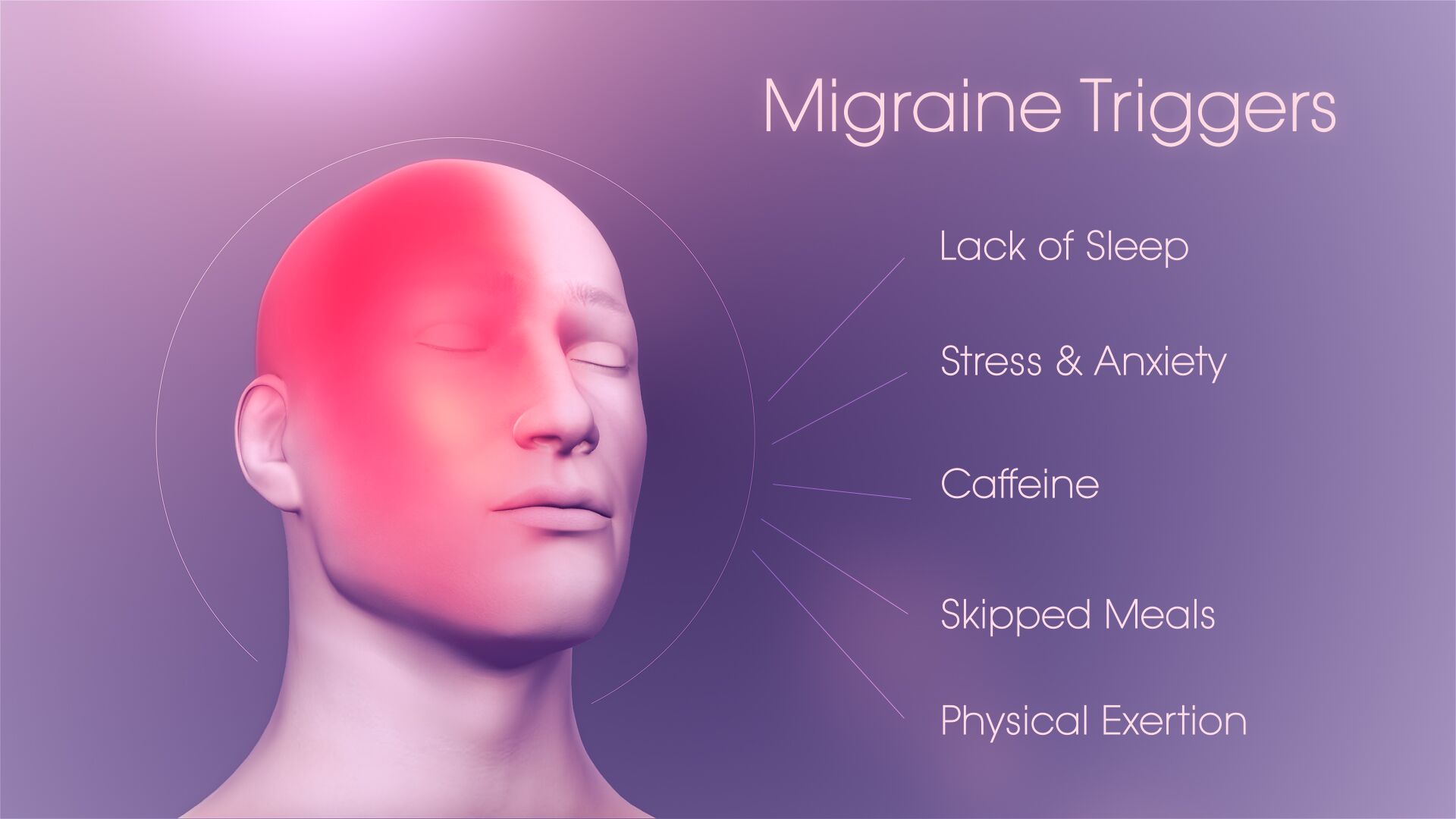A migraine is a headache disorder that is usually identified by recurring headaches that may be both mild or severe. These headaches usually last from anywhere between 2 to 72 hours. Symptoms like nausea, sensitivity to light sound or smell and vomiting also accompany a migraine. Migraines are extremely common and prevalent among 1 out of every 7 people.
Types
There are two main types of migraines - migraine with aura and migraine without aura.
When a person experiences a disturbance of the senses leading up to a migraine, it is a case of a migraine with aura. Aura is accompanied with confusion in thoughts and experiences, flashing lights, blind spots and unpleasant smells among others.
In migraines without aura, a person experiences a migraine but without any sensory disturbance leading up to the attack. The most common form of migraines are those without an aura.
Causes

The causes of a migraine are a mix of genetic and environmental factors. The triggers that are likely to set off a migraine could be hormonal changes or emotional triggers like stress, depression, excitement or anxiety.
Physical causes such as tiredness or insufficient sleep, poor posture, tension in the neck and low blood sugar can also act as triggers for a migraine. Other triggers could also be alcohol, caffeine, or some specific types of food. Irregular meal times and dehydration are also considered as potential triggers for a migraine.
Environmental factors such as strong smells, bright lights, loud noises or second-hand smoke are also possible triggers.
Treatment and Medication
There are three main aspects of treatment. These are: trigger avoidance, acute symptomatic control and medication for prevention.
Trigger avoidance requires lifestyle changes like getting enough sleep, reducing stress and regular physical exercise.
There are many different types of migraine medication, including painkillers. Over-the-counter medications effective for treating migraines include naproxen, ibuprofen and acetaminophen.
There are several medications and supplements that help prevent migraine attacks, including antidepressants, vitamin B-12 supplements and riboflavin. However some people can experience a medication overuse headache or rebound headache. This happens when too many medications are taken in an attempt to prevent migraine attacks
Migraine is the world’s third most common disease. Because of it being so prevalent, there are a lot of medications available for curing migraine and proper precautions must be taken.
Sources

Your Sinus Headache could actually be a Migraine
If you suffer from frequent sinus headaches, there is a good chance that you are actually experiencing migraines! Because sinus is not as common as you think. Read More..

Remedies To Manage Migraine Headache
As there are no defined causes, migraine treatment too is a tricky thing. Here are some management techniques that can bring relief. Read More..








